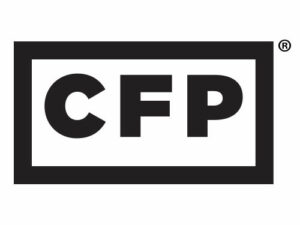By Bryan Trugman, CFPⓇ
Financial planning is often a misunderstood profession. I sometimes find myself educating new clients about what the professional relationship looks like, how it works, and the overall benefits of working with a financial planner. Some clients have relatively straightforward needs, such as expecting to receive an inheritance in a few years or trying to figure out when they will be able to retire. But many times, people don’t make financial planning a priority because they don’t see an obvious reason. Here, I’m going to lay out a few of the less obvious (but no less important) factors that come up during financial planning conversations.
Getting Serious About “Someday” Goals
Typically between ages 40 and 50, we find that clients start to think more often about their long-term ambitions and the things they consider most important. Turning 40 is a big milestone and often a wake-up call, especially if you realize that you still haven’t made progress on goals that you’ve considered important for years. In my role as a financial planner, I help my clients look at the big picture and think about the time and money they will need to make ideas real. I encourage my clients to put a timeline to anything they truly consider important, and then I can help guide the conversation about whether a given timeline is realistic or not, and what will be needed financially.
Enjoying Today While Building Tomorrow
Most people reach their highest-earning years between age 50 and age 65. The high-earning years are a fun and exciting time—and also a pivotal period for retirement. You need to manage your accumulation continually during this period and carefully plan your distribution strategy. My role as a financial planner is to do the heavy lifting and put the necessary resources in place to safeguard your retirement. I also break down the numbers for my clients so they know how much they need to be putting away to stay on track. This awareness brings comfort that allows them to enjoy vacations and other well-earned luxuries without feeling irresponsible or worrying that they should save the money instead.
Living Fully in Retirement
After you retire, you have to learn to adjust to a different approach to managing money and investments. Once you no longer earn a paycheck from a job, you begin to draw against your retirement funds. Many people don’t realize how complex the draw-down phase of retirement planning is; there are many ways you can burn through your funds much faster than necessary just by failing to draw against them in the right way. Most people will draw on Social Security. You may have a 401(k) or IRA in addition to other investments, and you might have a pension. The sequence in which you draw against your income streams can drastically impact how long your funds last. My goal as your financial planner is to take away the stress of worrying about whether or not your funds will hold out.
How Do You Want to Retire?
While I have worked with many different financial scenarios, I find that I most enjoy helping people create a clear vision for how they will fill the 40-hour gap after retirement. I enjoy seeing what happens when my clients take their ideas out of the abstract. If you haven’t created a financial plan yet, you may be in for a pleasant surprise when you finally realize the clarity and comfort that comes from seeing your numbers on a screen. Reach out to me this week and let’s get the ball rolling. You can send me an email at btrugman@attitudefinancial.com or give me a call at (516) 762-7603 to set up a consultation.
About Bryan
Bryan Trugman is managing partner, co-founder, and a CERTIFIED FINANCIAL PLANNER™ practitioner at Attitude Financial Advisors. With more than 13 years of experience, Bryan specializes in addressing the financial needs of new parents as they seek to realign their finances, assisting divorced individuals as they navigate an unforeseen fork in the road, and strategizing with those seeking to accrue a dependable retirement nest egg. Bryan is known for being a good listener and building strong relationships with his clients so he can help them develop a customized financial plan based on what’s important to them. He is passionate about helping his clients experience financial confidence so they can worry less and play more. Bryan has a bachelor’s degree in industrial and systems engineering with a minor in mathematics from State University of New York at Binghamton. He has served on the board of the Financial Planning Association and continues to be actively involved in the national organization. He is also a member of the Plainview-Old Bethpage Chamber of Commerce and has served as its vice president and as a board member. When he’s not working, you can find Bryan on the ballroom dance floor or engaged in a fast-paced game of doubles on the tennis court. To learn more about Bryan, connect with him on LinkedIn. Or, watch his latest webinar on: How Much Is Enough? A Surprisingly Simple Way to Calculate Your Retirement Savings Needs.



